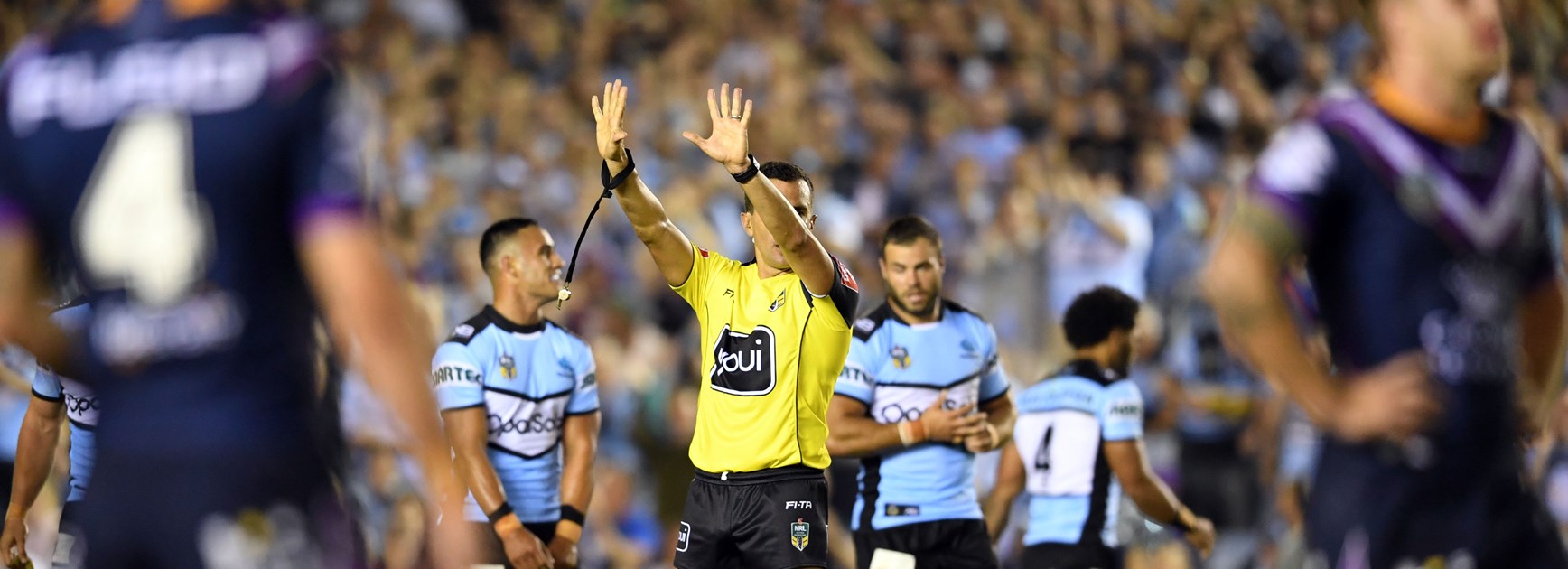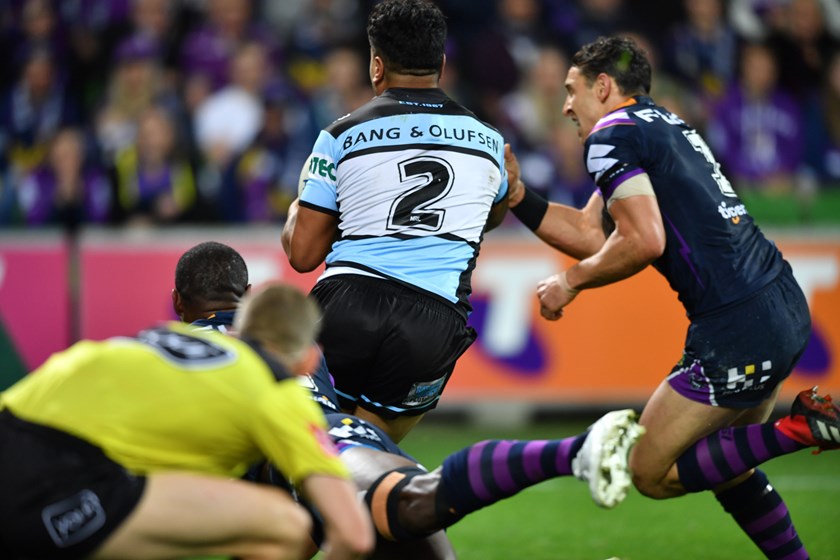
No more dawdling by players sent to the sin bin in the 2019 Telstra Premiership season is one of the rule changes approved by the ARL Commission on Tuesday.
Head of Football - Elite Competitions Graham Annesley said the ARLC approved five main changes designed to have the ball in play for longer periods of time, as well as improve player safety.
Players taking their time to exit the field after a sin-binning is one area NRL fans found particularly frustrating and the ARLC has heard the complaints.
In 2019 players sent from the field for 10 minutes must now run from the field taking the most direct route to the dressing room.
"Failure to do so may lead to clubs being breached and fined under NRL Rules and/or offending players may be charged with Contrary Conduct under the NRL Judiciary Code," a NRL statement said.
There are two significant changes to that code: changing the strict criteria around shoulder charges and increasing the points penalty for dangerous contact to the head/neck of players.

The first appears to be prompted by the number of players cleared of a shoulder charge on a technicality – most often over whether his arms wrapped around the attacking player or not.
Billy Slater's controversial tackle on Cronulla winger Sosaia Feki in Storm's preliminary final win seems to fit into this category.
The former Test fullback could have been rubbed out from the grand final but the judiciary panel agreed he braced for the contact with his left shoulder before he was able to wrap his arm around Feki.
NRL in talks about expansion
Annesley did not give any examples but he said that allowing the judiciary to find a player guilty of an alternative "dangerous contact" charge, would help stem the number of players being cleared on a technicality.
"It's basically an option to the judiciary that if something doesn't meet all the criteria of a shoulder charge, that they can still consider it to be dangerous contact," Annesley told NRL.com.
"Yes, players will still continue to face shoulder charges, and yes, they will continue to be found guilty of shoulder charges. But if there's any doubt whether it meets all the criteria of that offence, it can still give them [the judiciary panel] scope to consider it 'dangerous contact'."
The other player safety measure approved by the ARLC on Tuesday was raising a Grade 2 dangerous head/neck contact charge to 300 points and a Grade 3 to 500 points (Grade 1 charges will remain at 100 points). A 100 point penalty equates to a one-match suspension.
Two time-saving rule changes are:
- A reduction of the scrum clock – from 35 to 30 seconds
- A reduction of the drop-out clock – from 30 to 25 seconds
Annesley said there would be no change to the number of interchanges (eight) for season 2019.
But he added officials will review the first half of next season, before a decision is made on any future reductions for 2020 or beyond.


